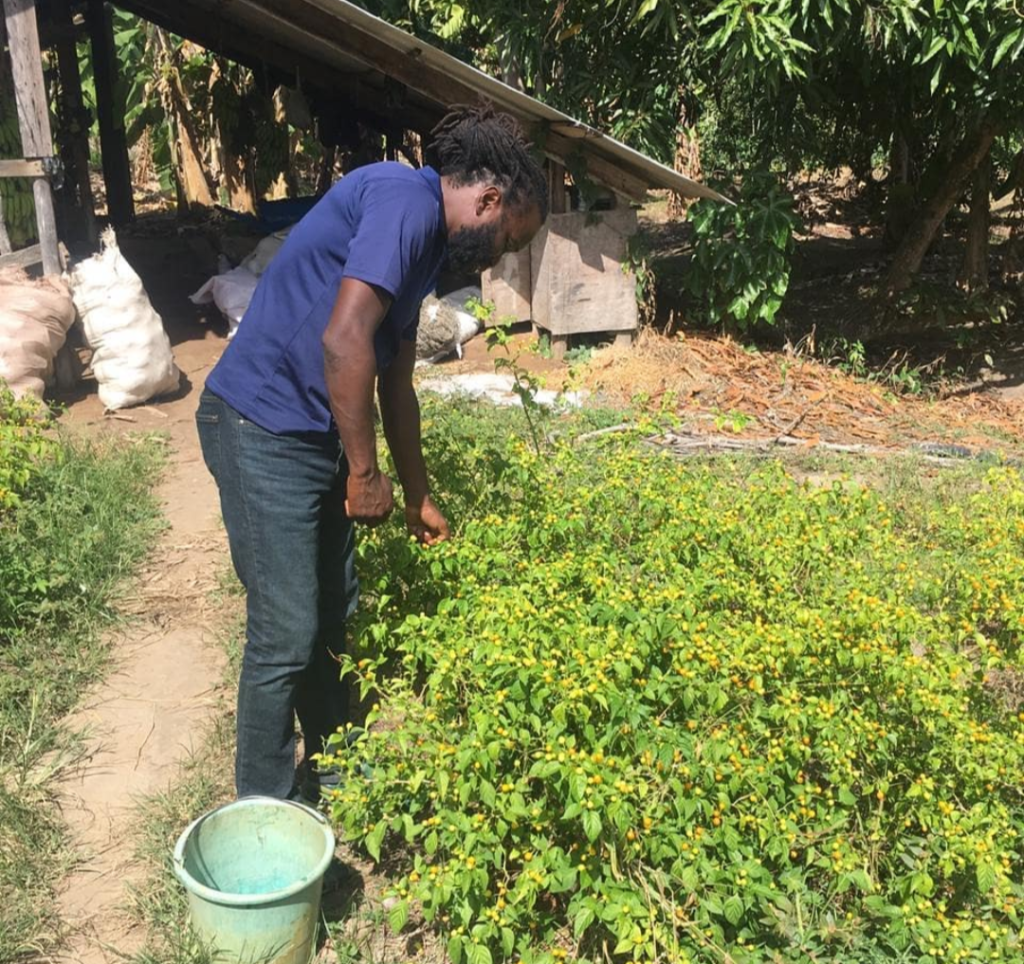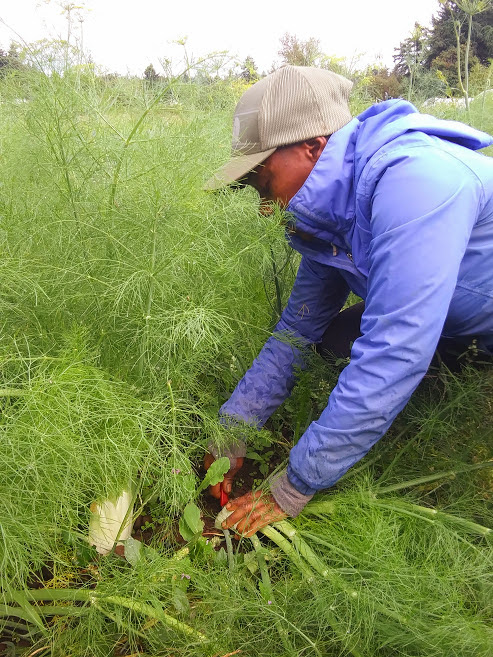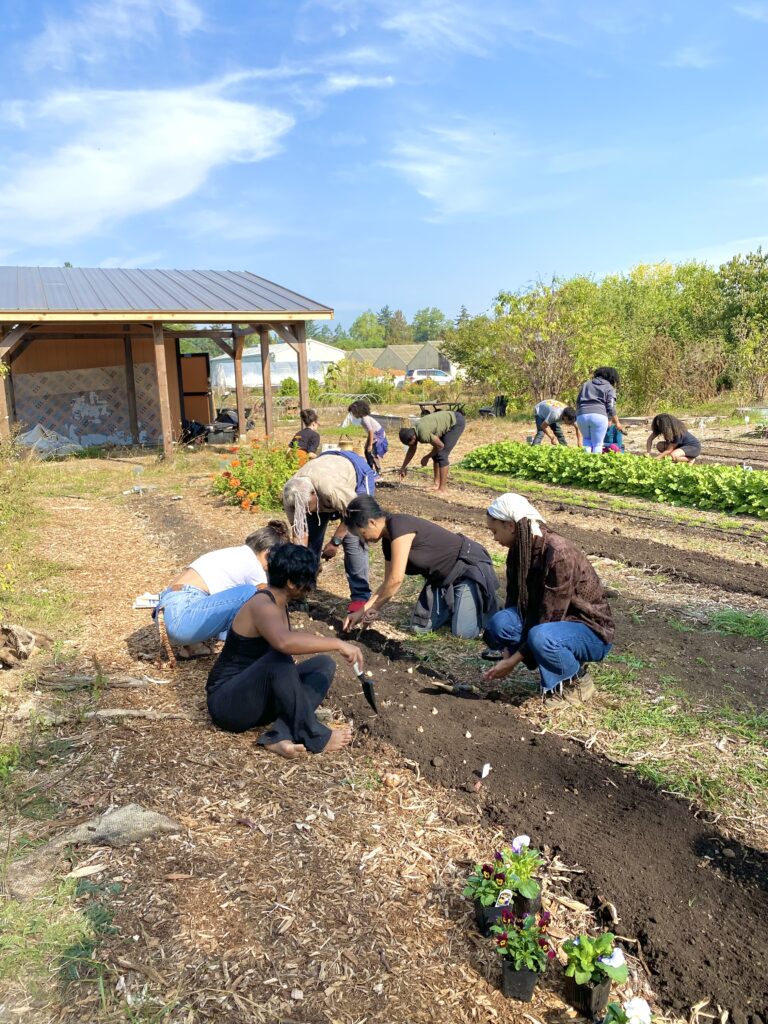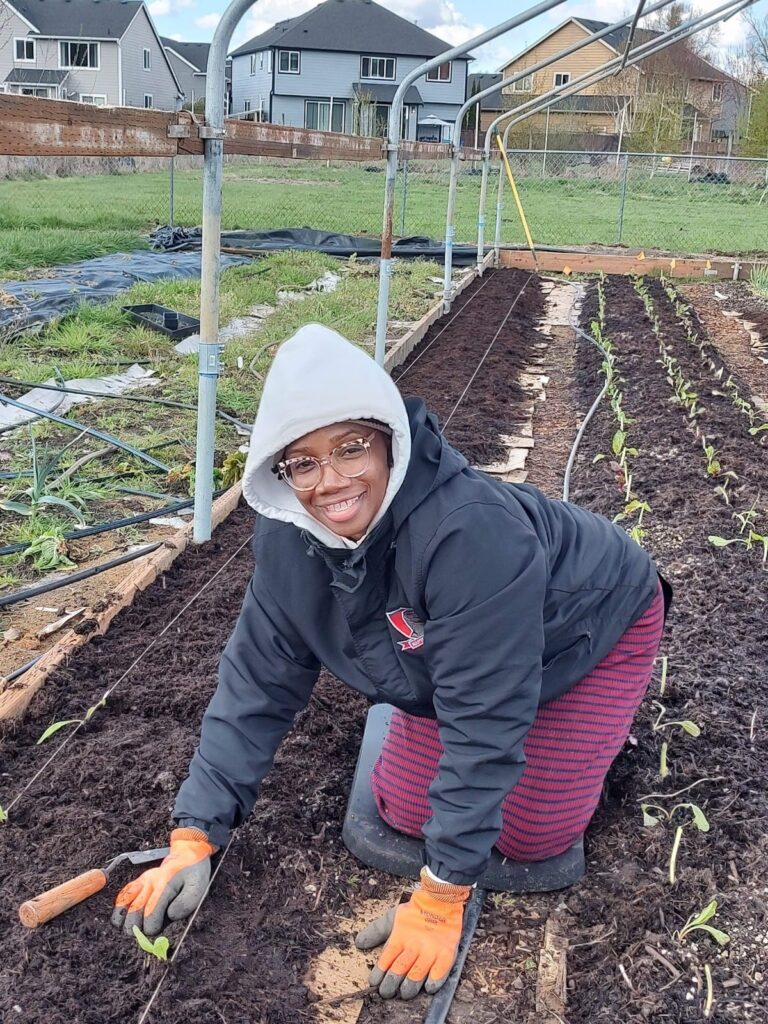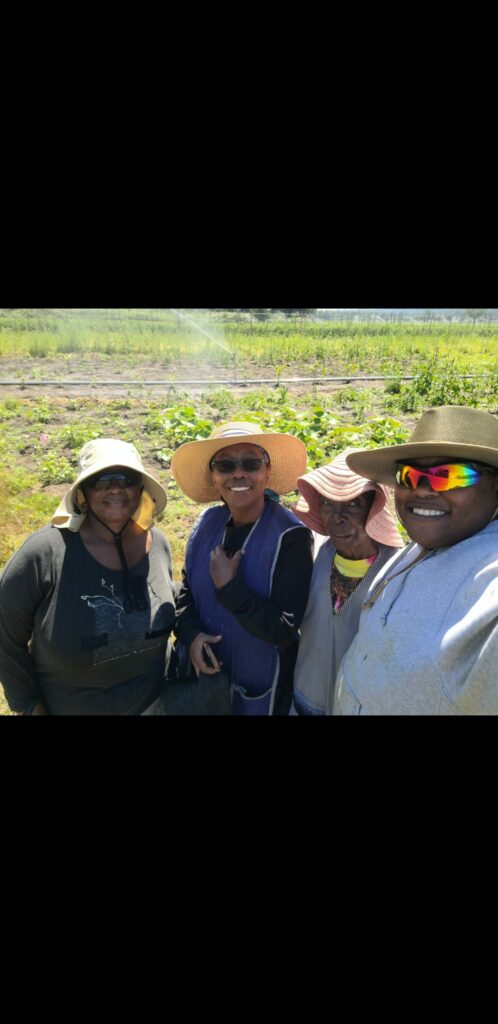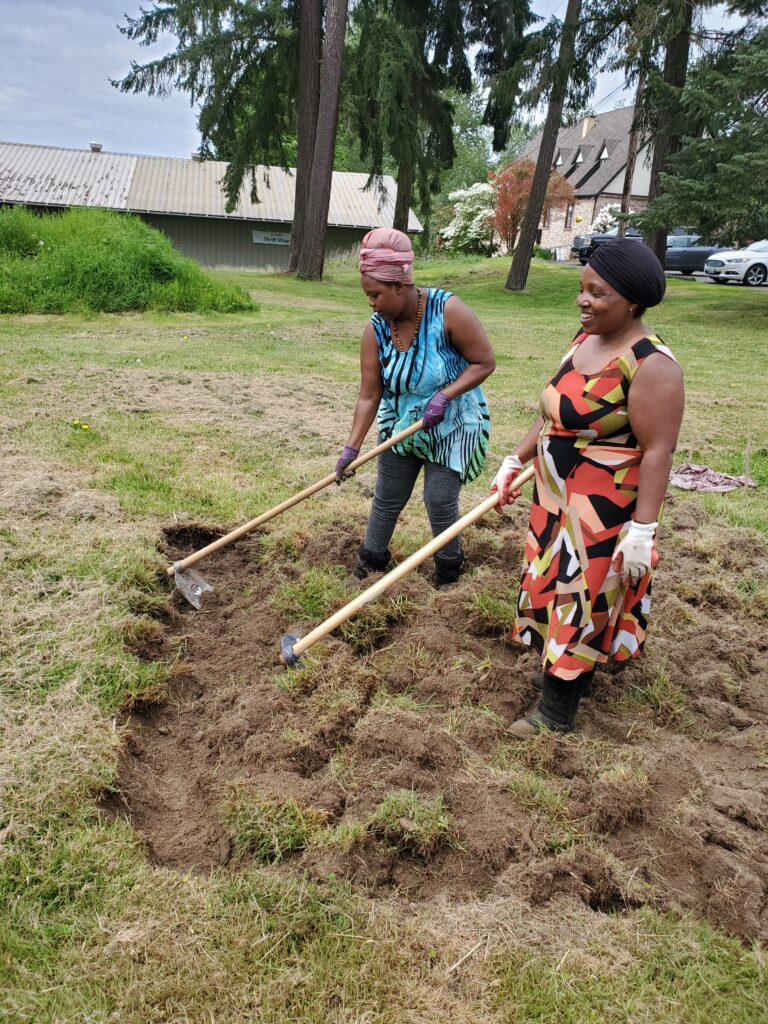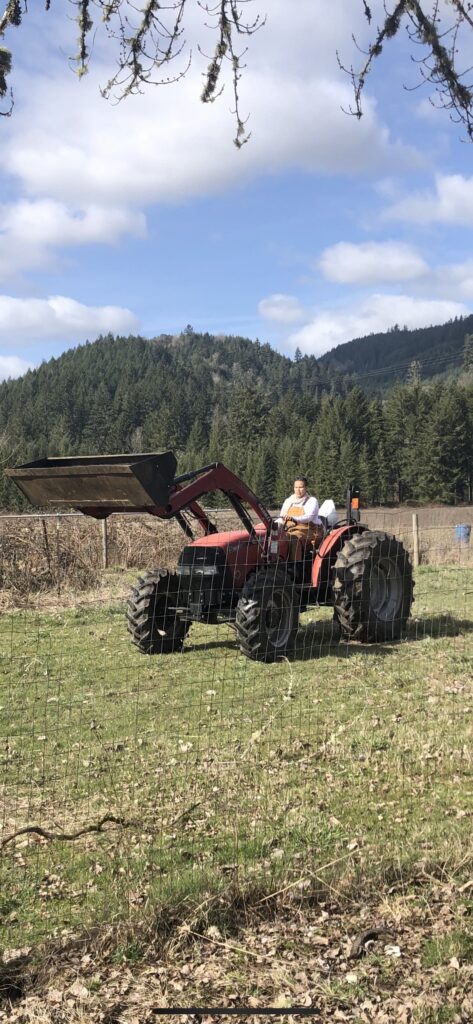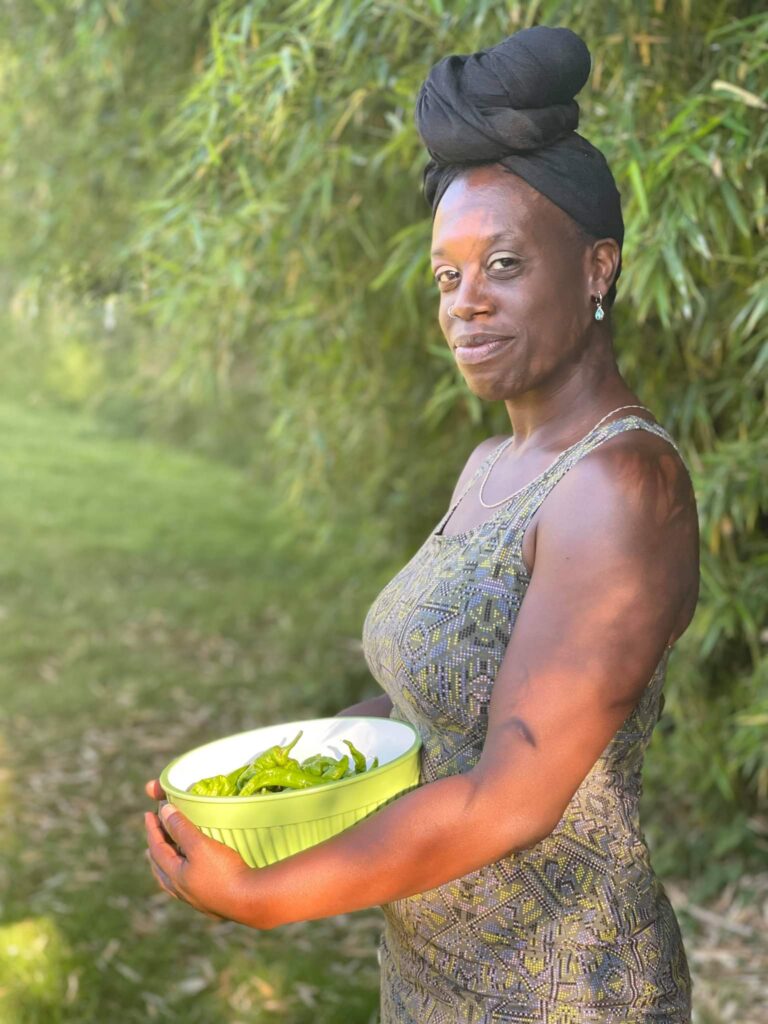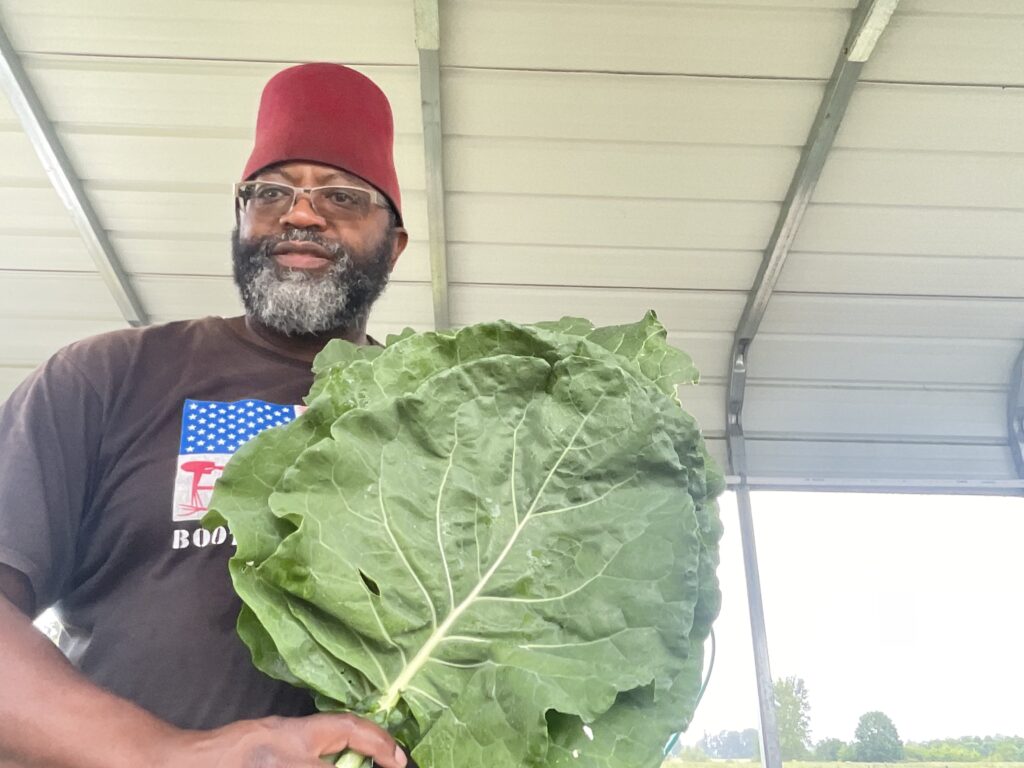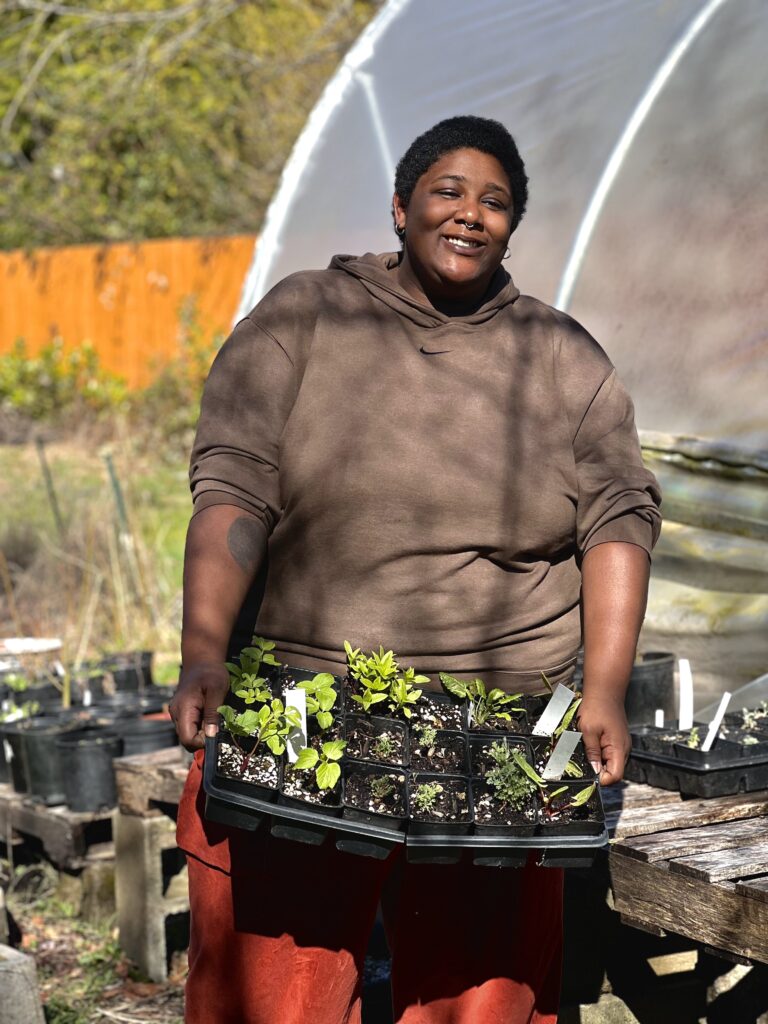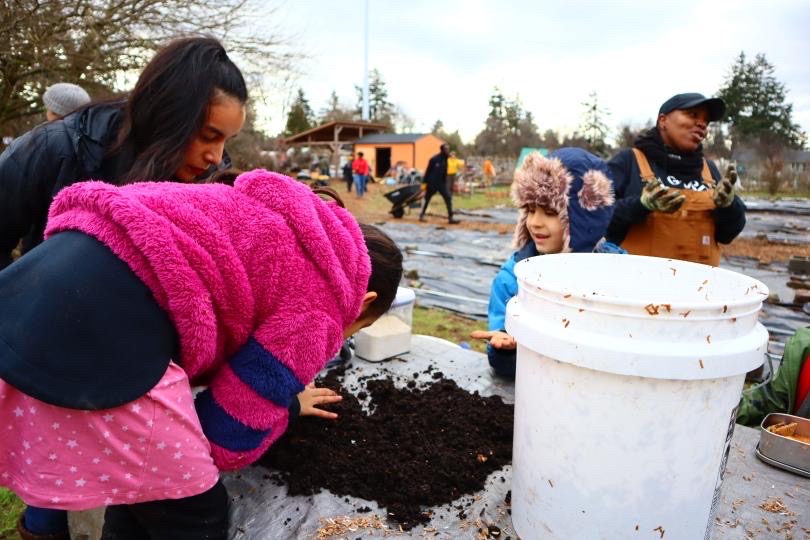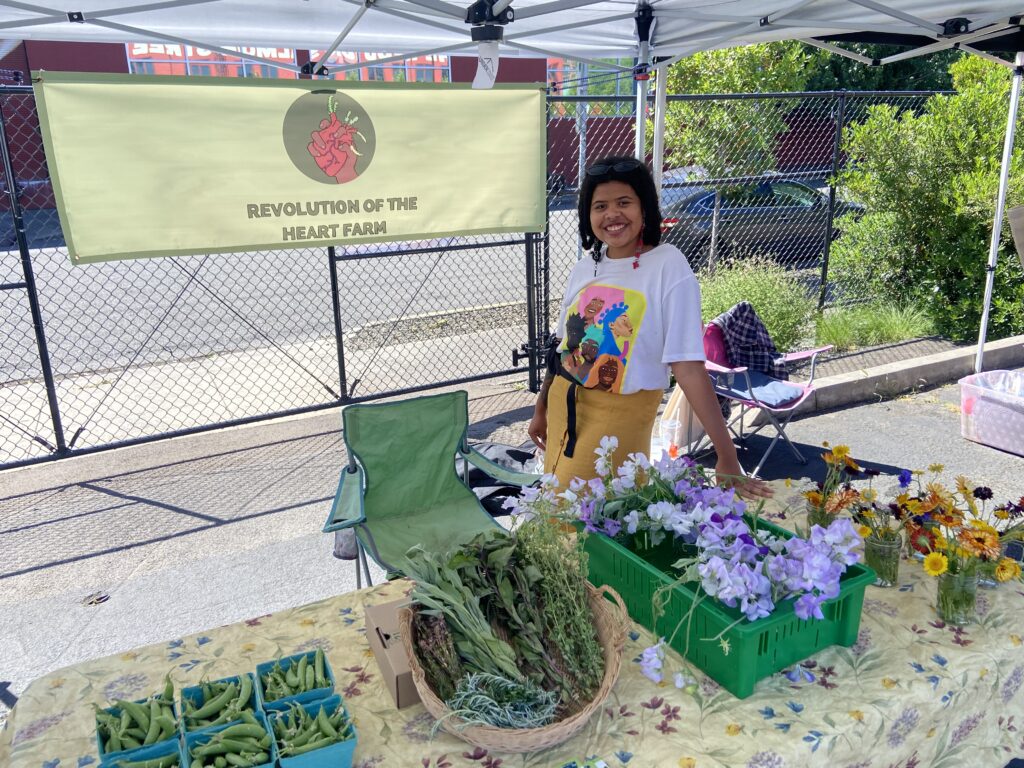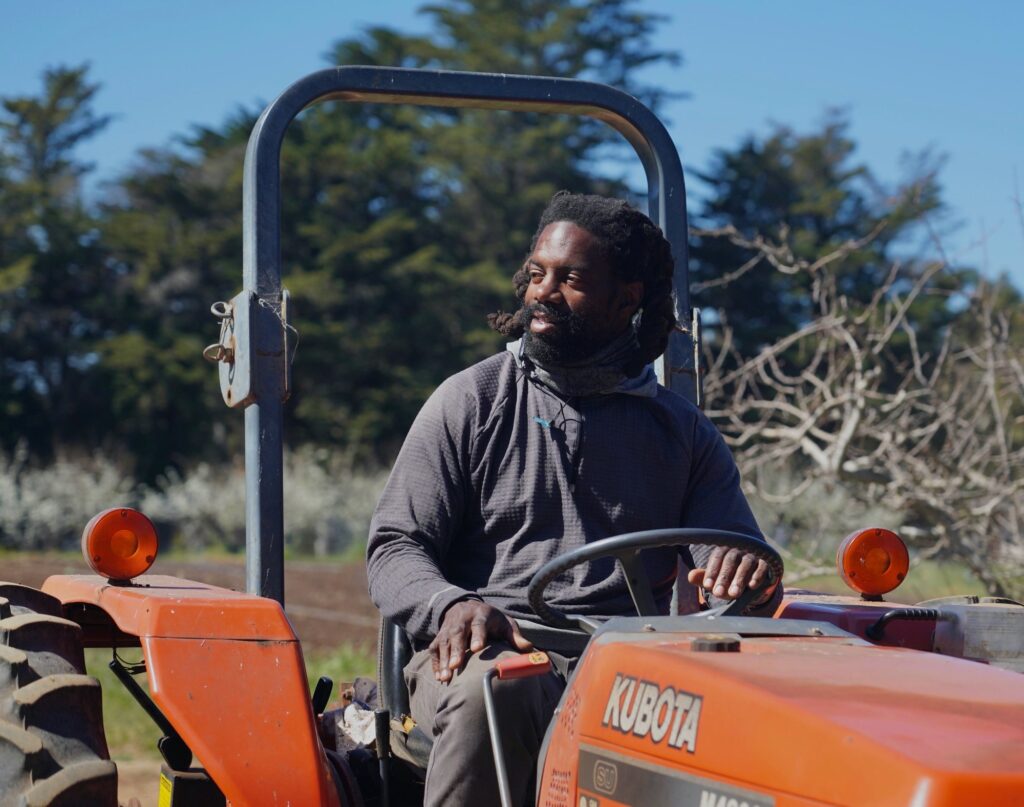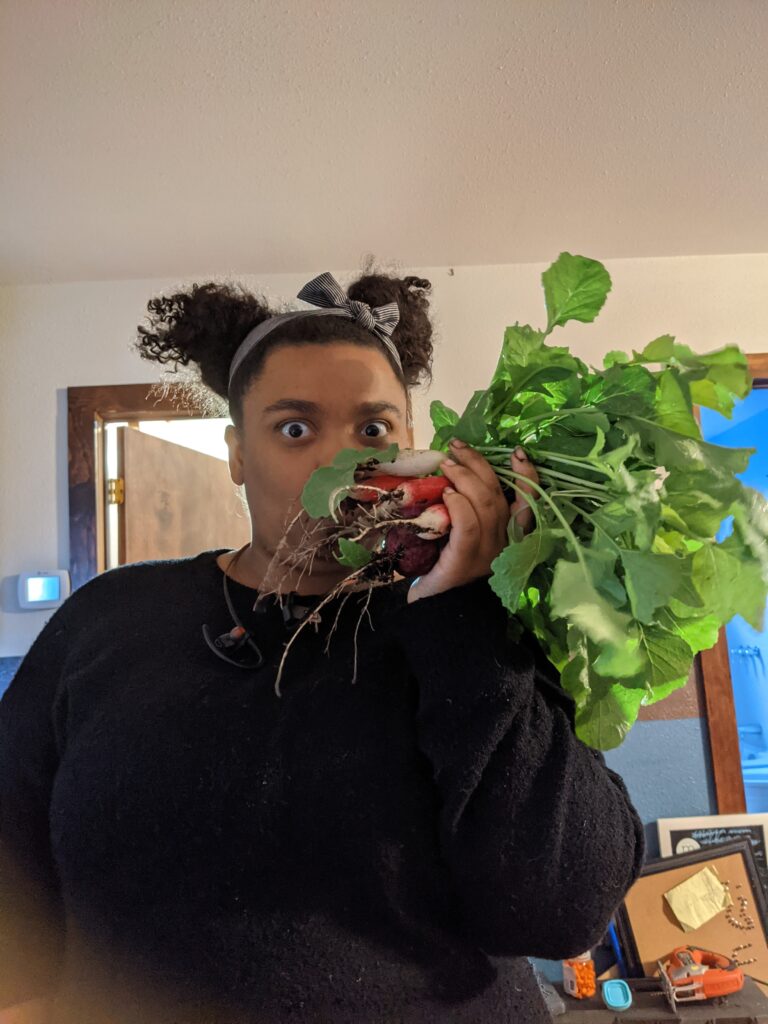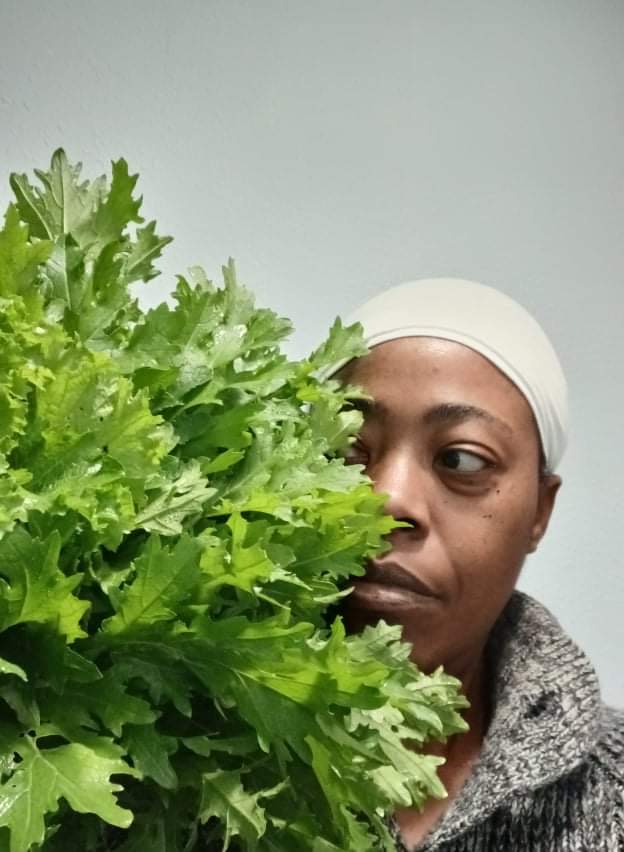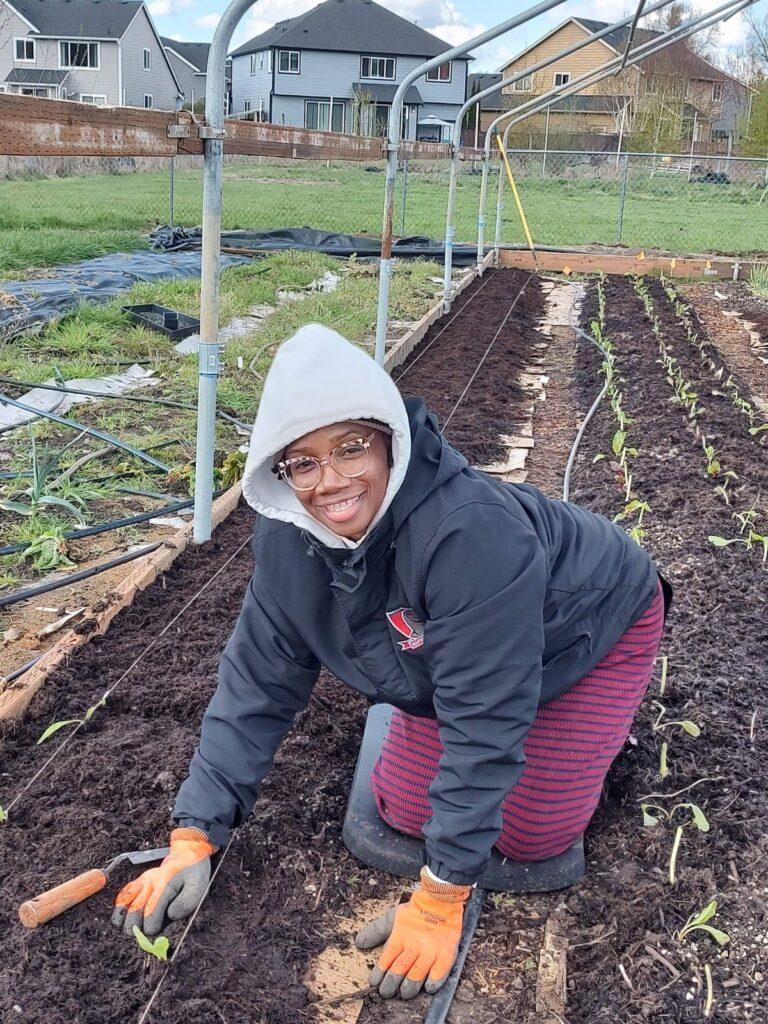Black Food Fund x Giving Reparations Offer Reparative Redress
Announcing the 18 incredible Black farmers and land stewards who have been selected to receive the Black Farmer Grant by Black Food Fund, in partnership with Giving Reparations. These farmers carry forward the powerful legacy of Black agrarianism in Washington and Oregon state, and we are honored to support them with this grant.
The $75,000 being redistributed is a way to offer acknowledgment and reparative redress for Black farmers and land stewards who have faced a long history of systemic racism in order to steward and find healing on land, produce healthy, culturally-relevant food, and build intergenerational wealth. At Black Food Fund, we believe that reparative redress is a necessary step towards creating a more just and equitable future for all.
Many thanks to our selection committee members Rob Cato, Qiddist Ashe, Melony Edwards, and Arlo Bush.



Our partnership is about more than just redistribution of funds, it’s about creating a pathway for Black farmers to build wealth and pass it down to future generations. It’s about redressing a system that wasn’t built for Black bodies.
Christopher Rachal, founder of GIVING Reparations
Our work is about recovering financial capital and redirecting those resources to support Black food and land justice. The act of leveraging capital for social change is an opportunity to recover wealth and redirect its flow, as a way to offer acknowledgment and reparative redress.
Jamese Kwele, co-founder of black food fund
2023 Black Farmer Grant Recipients
Alliyah Perry
Kezama LLC
Darlene Parker Kozak
Black Futures Farm
Tatu Marie-Jose
TJ Brown
Bashira Muhammad of Zoom Out Mycology
Marissa Robb
Adfia Bristol
Kendra Graves
Serena Boyd of another spring farm
Alisha Howard
Dorian Campbell
Kwame Enoch Bey
Vincent Peak
Haki Farmers Collective
Mark Jacobs
Kawamoto-Wipala farm (Ana Galvis and Brent Walker)
Reeba Daniel of Keep Growing Seeds
Call for Nominations (Closed Feb. 10)
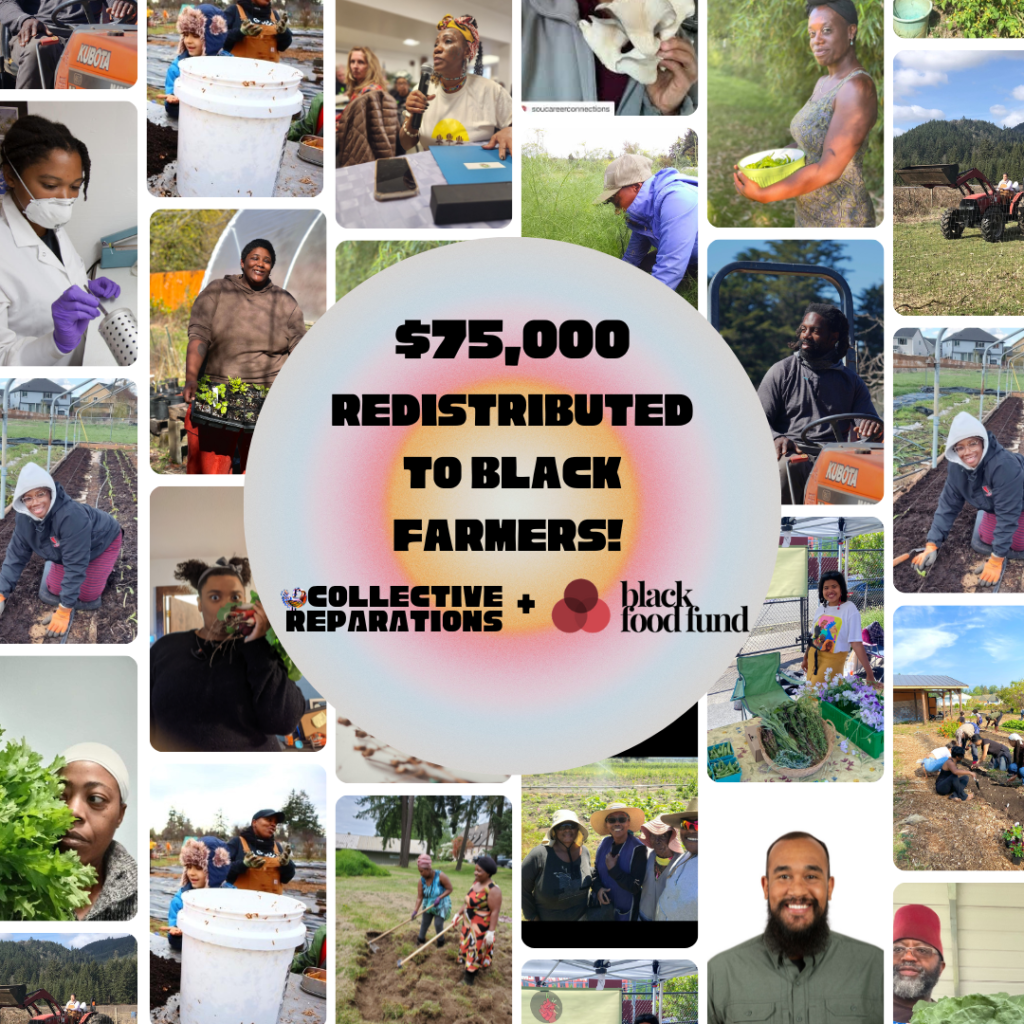
What: Black Food Fund and Giving Reparations have joined forces to offer acknowledgment and redress to Black farmers. We will redistribute $75,000 this cycle.
Who: This opportunity is for Black farmers and food producers working in Oregon or Washington. For the purposes of this application, the term farmer includes ranchers, fishers, and folks who add value to their farm products. This opportunity is for anyone who identifies as Black, African, African American, Black Indigenous, Black Creole, Afro Caribbean, Afro Latine, and/or multiracial Black.
How: Nominations will be accepted at Giving Reparations from Monday, January 30 – Friday, February 10, 2023. Self-nominations are welcome. After the nomination period ends, all nominees will be asked to complete a short application.
Selection decisions will be made by a panel of community reviewers using a rubric. We seek to support the diverse spectrum of identities that make up our communities, and will center folks with disabilities, folks who identify as trans, nonbinary, queer, poor and/or working class, immigrant, and/or refugee, and folks who are system impacted. We anticipate being able to redistribute funds to approximately 20 farmers.
Farmer Eligibility
To be eligible, a farmer must:
- Identify as Black, African, African American, Black Indigenous, Afro Caribbean, and/or Afro Latine
- Live/farm in Oregon and/or Washington
- Earn a significant proportion of their personal income from their farm operation. This program is designed to support farmers and food producers who are currently, or are working toward, financially supporting themselves through their agricultural careers. Farmers who own and operate farm operations who also have off farm jobs to support themselves are still eligible to apply.
Notes
- We deeply appreciate the work of home or community gardeners, however this is not a grant opportunity for home or community gardening.
- Previous recipients of the Black Farmer grant are eligible for this round of funding. Applications from farmers who are not previous recipients will be prioritized. We expect to redistribute funds to both new and previous recipients.
Contact us with any questions about these guidelines.

